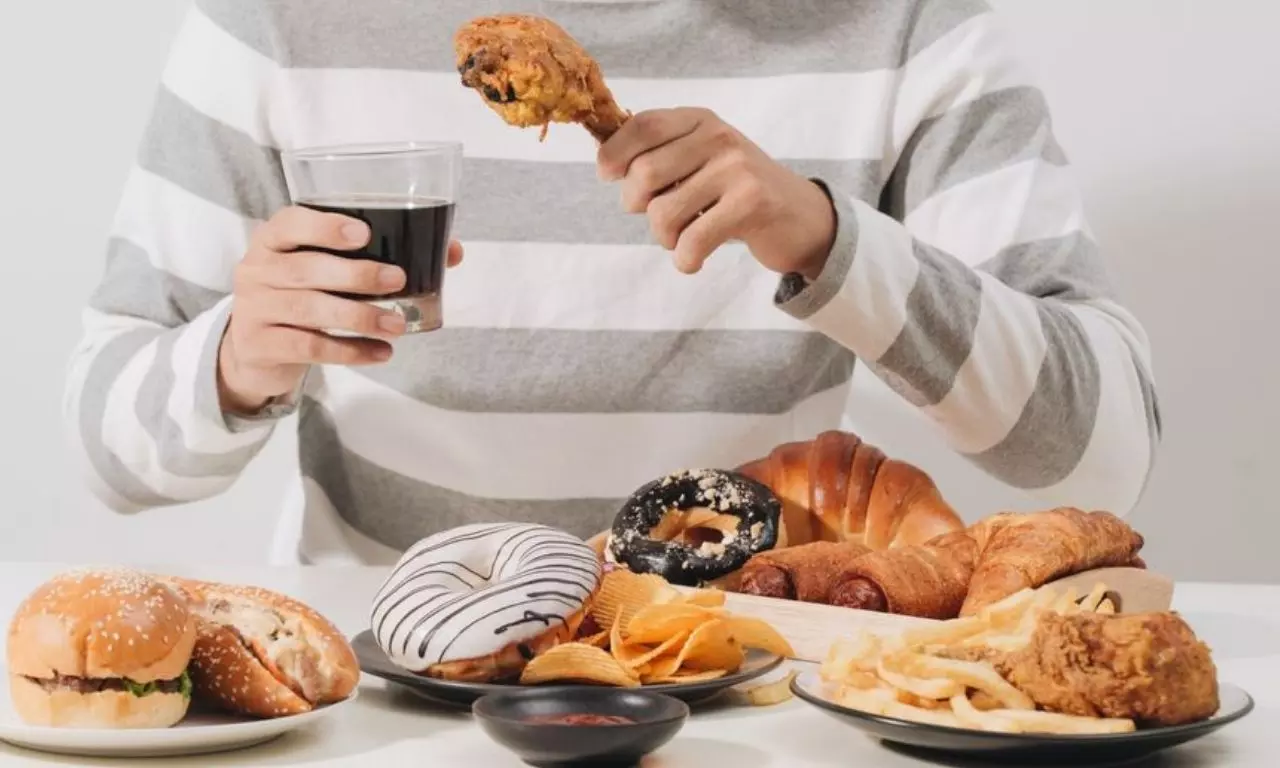A short and handy guide to understand why on some days, all we want to do is eat our feelings
A nutritionist and a psychologist help us decode the myriad triggers behind food cravings
- By Tarvene ShahpuriLoading...
- | 12 July 2021 12:01 PM IST
 X
X
If eating your feelings could be a job, we would all become millionaires. Jokes aside, I am sure that many of you struggle with sudden cravings and find it hard to keep that unbidden yearning for a big slice of cheese-laden pizza, brownie or mithai in the middle of a workday. Truth be told, on some days, all you want to do is swap that dal-chawal with a plate of carb-loaded pasta. And while there is nothing wrong with treating yourself, every once in a while, dig deep and there's a lot to unearth around craving.
Now, cravings could emerge as a longing for something spicy or sweet, but typically, it's the desire for something that's outside of your routine diet. The issue, as such, is not so much with cravings in general, but the fact that most of the time, it's for unhealthy, high calorific and sugary foods. What we must be cognisant of is that typically a craving arising would mean that your body is trying to indicate something. This could be set off by a deficiency or a deep desire, and the only way to trace their origin is to analyse your eating habits.
To understand this better, I reached out to a leading nutritionist and a psychologist, who beyond lending insight into the reasons behind cravings, also weighed in on possible ways to manage them better. But before we get into that, let's try and understand what qualifies as a craving medically, speaking. Clinical nutritionist Lovneet Batra describes them as "A sudden urge for particular foods that are independent of our appetites." "The key to dealing with your cravings is to actually face them head-on, and discover what you may be missing out on," she opines.
Decoding cravings
Explaining this further, Batra adds that a craving for salty foods, like a bag of chips could mean that you're dehydrated. "Thirst is often masked as hunger. So a craving for salt, which helps your body retain water, could mean that you aren't drinking enough or you are losing water faster than your ingesting—through sweating, diarrhoea, or vomiting, for example. Salt craving can also be the result of stress hormone fluctuations and low levels of electrolytes," she suggests.
Sugar cravings (yes, you cheesecake hoarder), on the other hand, maybe related to what you have consumed earlier in the day. If you're not eating enough, especially during the first part of the day, you may notice increased cravings for sugar later. "They indicate blood sugar imbalance and mineral deficiencies like chromium and magnesium," Batra explains, adding that since sugar is a concentrated source of energy when it's deficient in the body, it may crop up in the form of a craving, which is a sign that you need a boost of energy.
Beyond the anatomy, the mind too could have a bearing on what you're craving on a particular day. Psychiatrist and psychotherapist, Dr. Nahid Dave from Thought Matters, a psychiatrist clinic, suggests that stress could also inspire a craving for sugary treats., "Eating carbs and sugar increases levels of serotonin in your brain. So a sugar craving could also mean that your body is using a survival mechanism." In simple words, this would qualify as us trying to feel better.
Women reading this might find this interesting. Do you observe a surge in cravings when on your periods? Batra clarifies that it's natural to ache for a steak or burger when you're not eating enough proteins, or if you have a chronic iron or vitamin B deficiency. "During heavy periods, your body could lose iron. If you don't eat enough proteins during this time or skimp on iron-rich foods, you could experience a hankering for meat," she elaborates.
Managing food cravings
Taking cognisance of these factors is essential in managing your cravings, because as they say, to solve a problem you must first know what the problem is. But, there are also simple changes you may want to incorporate to keep those binging sessions at bay, such as maintaining adequate water intake or opting to drink a glass of water before you reach out for those fries.
The other thing is to replace your guilty pleasures with healthier alternatives, like nuts and seeds, fruits, hydrating drinks and low-cal tidbits. And while monitoring your diet is essential, overall changes in your lifestyle are of equal essence. To that end, it is important to ensure enough sleep and manage stress levels. Shedding light on this, Dave tells us, "Rising cortisol levels can impact your hunger hormones, which ultimately may make you crave comfort foods, which can be unhealthy in the long run." Basically what this means is to switch that true-crime series off and get at least 8 hours of sleep, so that once you wake up, you can truly look soak in the sun and tell yourself, 'Hey, it's a new day.'
This article provides general information and discussions about health, nutrition and related subjects. The information and other content provided in this, or in any linked materials, are not intended and should not be construed as medical advice, nor is the information a substitute for professional medical expertise or treatment.

Tarvene Shahpuri
Tarvene is a chocolate and chai fiend who is constantly on the hunt for cute cafes. You can catch her baking some Biscoff cheesecakes or binge-watching Netflix shows. She likes filling up her free time painting, listening to music or going on long drives.


